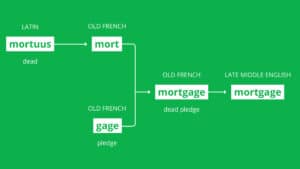I’m going to share what the property tax rule is about, how it changed mortgage taxation, and what sort of mortgage strategy you might want to consider. I will also provide one simple way that will help work out your anticipated taxes under the new tax regime.
Bright-line period changes.
So, two tax changes have been implemented for property investors. The first one is the bright-line test. Before if you had sold your investment property within five years, you would pay tax on the difference in the value that you have gained. The old bright-line period was 5 years. Now this bright-line test has been extended out to 10 years for existing properties. The new bright-line period is 10 years.
If you own a property, or you buy an investment property, and you sell it within 10 years, you will pay tax on the capital gain profits. Keep in mind that there is an exemption for new builds, they are still within five years.
Mortgage repayment exclusion from tax-deductible expenses.
Mortgage interest repayments are no longer a tax-deductible expense for your investment property.
This is 100% confirmed on existing homes, but for new builds, there are further consultations being made. So, some of you, if you don’t know what tax deductibility is on interest expense here is a quick rundown. Under the old model, you have your profits at the top. Under profits, you have insurance, maintenance, rates, etc., as a second expense. Then you deduct your mortgage interest. And then at the very bottom, you have your net profit. And under net profit, you would pay tax.
In the new regime, you have your rental income and then you deduct all your rates, insurance, maintenance costs, and then you have your net profit. Then you pay tax. Then you pay your mortgage repayments.
So, in simple terms, you’ll be paying a lot more tax on your property investments if you had a mortgage on them. Now, of course, there’s no need to panic here because, for existing homeowners, this is going to phase in over four years. So, you’re not going to get a massive tax bill at the end of this year, it’s going to be gradually changing. So, don’t need to panic about that.
But yes, Cindy is implementing a penalty if you’re leveraging. So, how does it affect your bottom line? How much tax do you end up paying? Now, since the interest rate is historically low, it ain’t as bad as a lot of people might be making out to be, especially on the property investor chat groups.
Property tax calculations: the guesstimate guide
Now, a simple rule of thumb, if you have $1 million of the mortgage against your investment property, the interest at the moment is around $25,000 a year. So, for the majority of households with a $1 million mortgage on investment property, the tax benefit would be at 33%, which equates to around $8,250 per year. Now, judging from our client base at mortgagehq, most investors are sort of sitting between that $1 million to $2 million of mortgage leverage mark.
If I was to simplify this. If you have a property investment with a mortgage of $1 million to $2 million. Every year, you have to pay $10,000 to $15,000 to sit at the table to keep playing the game. To work out exactly how much you’re obligated to pay as a rough estimate. First, take the mortgage that you have against your investment. For example, if you have $600,000, you can now multiply this by your interest rate, perhaps it’s 3%.
So, $600,000 times 3% is $18,000 of interest. Instead of getting some sort of tax-deductible, you now have to pay for the tax on that. Calculate tax by taking $18,000 and multiplying by 33%, which equals $5,940 per year.
So, again, your mortgage times your interest rate times 33%. It’s a simple way that you can use to work out how much you may have to pay on tax.
The big question! Is property investing still worth it?
Would you still do it? Would I still do it?
Well, to me, it’s a very small amount in comparison to the upside that you’re getting for the leveraged capital gains. Let’s take a $1.5 million property, for example, and perhaps this property has a $1 million mortgage on it. One-third, we own. And two-thirds, we borrow from the bank. Let’s pretend capital gains is at 6% on a $1.5 million property.
That would give us $90,000 of capital gains per year, which two-third or $60,000 of that capital gains, we’re not using our own money, we’re using the bank’s money. And let’s say we have to pay $10,000 extra in tax per year now, and we take this out of the capital gains, the $90,000 now comes down to $80,000.
If you put $80,000 as a return against your equity of $500,000. Assuming your cash flow position is neutral (meaning all the rents is covering all the expenses plus tax), you will be getting a 16% return on your equity. Remember this return is on a relatively safe asset. So, in short, in my opinion, properties is still one of the best investment vehicles for mums and dads.
Property investors should be more careful.
Because of these tax rules, you have to be a lot more careful with your cash flow position. It is more important than ever to get the right professionals around you so you can keep growing and keep learning. If you’re a property investor, perhaps you’ve got a couple of mortgages now, how could you respond? The interest rate is really low at the moment and property prices have been soaring by 20% in the last 12 months.
There is still a lot of uncertainty in the market, especially with these bright line and interest deductibility changes. It’s very hard to believe the property market is just going to continue with both low interest rates and high prices. The only thing that you’re in control of is your cash flow.
One good idea to consider to manage this extra expense is taking advantage of the low-interest rates to borrow a little bit more money. Take this money and use it to renovate your properties so that you can increase your rental cash flow.
That extra yield is going to go a long way, especially with the new tax rule changes. It’s probably a good idea for you to top up a small revolving credit of some sort. Or if you’re refinancing as your mortgage rate is coming up for renewal you could include a revolving credit in your structure.
It’s good to get a little bit more extra money to sit in your rental account as backup rainy day money. If you’re holding the property long-term, even if you’re negative cash flow, that revolving credit is going to be a massive help for you.
Thirdly, do your numbers. Run the profit and loss on the new tax rules. If you’re cash flow positive, you might want to consider locking on a longer-term rate, such as 2.99% five years. This lets you lock in your future profit over the next five years. You can use online calculators to help run your numbers.
And fourthly, if you’re looking at property investments, you want to be more conservative on your profit and loss. Now, a simple way to be more conservative is to increase the interest rate that you would be running on that property. If, say, for example, you’re pretending that you’re going to lock in for 2.99% for five years, in your P&L, run it as 1.5 times 2.99%.
So, it would be around a 4.5% interest rate. And if you’re still happy with the bottom line after that, then you’ll be in a more comfortable spot to go ahead with that property. So, again, simplify it. When you’re running the profit and loss on a property, just make sure that you multiply the interest rate by 1.5.
Brightline exemptions for new build property.
Keep in mind the government is looking to stimulate more new build homes around New Zealand. So I expect them to offer more advantages for new build properties. At the moment the government is exploring exemptions on the tax deductibility for new builds. If those exemptions get passed I predict a big shift in the property market. We may see selling off of a lot of old units, especially those on cross-lease that don’t have much future development potential. I see a lot of investors buying new builds to take advantages of the tax environment.
But for now, I wouldn’t completely switch 360. I would wait for some of those rules to come out and see what they’re going to be looking like. I still think there’s a massive market for existing dwellings, especially with the increase for first-time buyers on buying the new builds at… instead of $650,000, it’s now $700,000.
A lot more money is being put into infrastructures and the 10-year bright-line test. Basically, that was what the developers had. Now, everyone has that 10-year rule. So, there’s a lot of advantage to develop and sell properties or even build new houses and hold them – if they allow new builds to have tax deductibility.
So, I’d say there’s still a lot of advantage to try and look for land banks. There are a lot of people who are going to be selling. You want to get into a strong position. Position yourself so you can make unconditional offers. Do that by understanding your financial position and ensuring it is quite strong. I think land banking opportunities are very desirable and investors will need to develop more tact.
If you’re deciding how you’re wanting to build your portfolio, you should analyze the numbers with somebody. A mortgage advisor is perfect for helping you analyze numbers and deals. While we might not tell you ‘to buy’ or ‘not to buy’, we will guide you through your decision-making process to help you arrive at a much better conclusion.
So, if that’s where things are sitting for you, definitely get in touch with a mortgagehq advisor.













